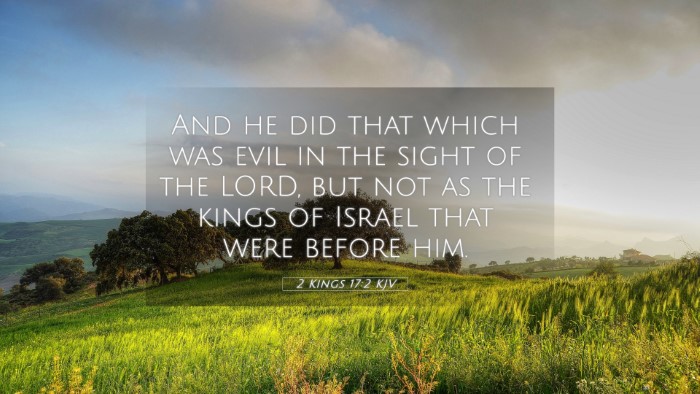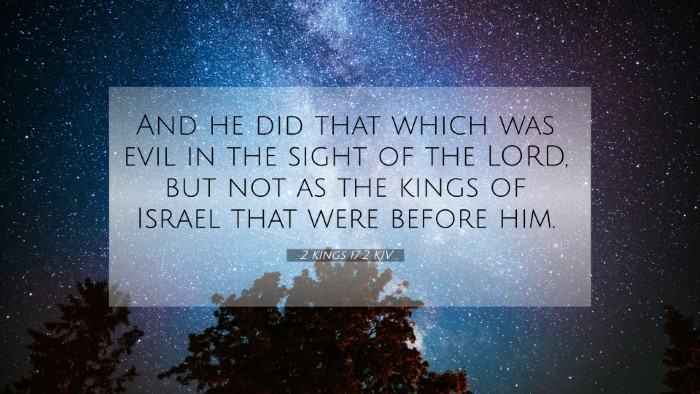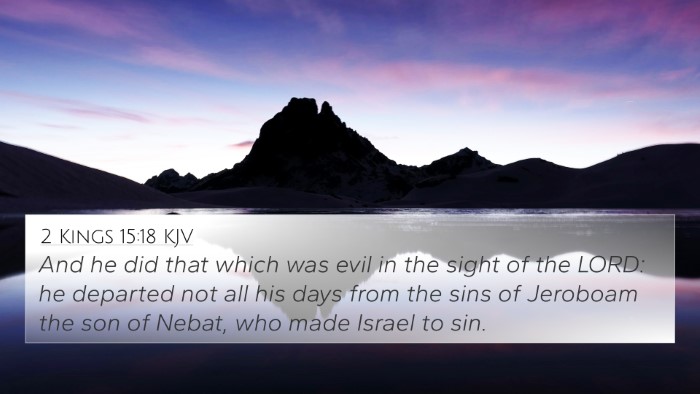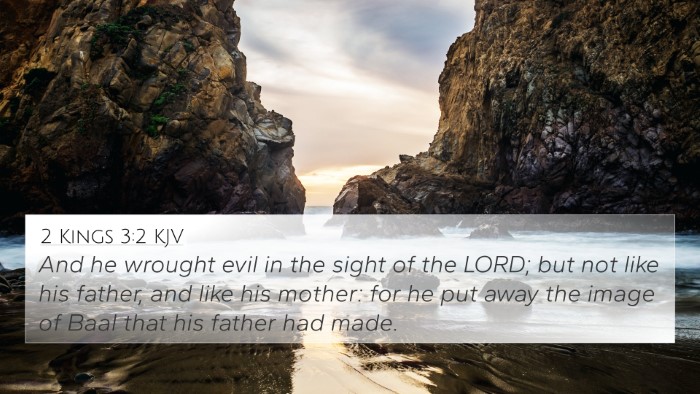Meaning and Interpretation of 2 Kings 17:2
Bible Verse: 2 Kings 17:2
“And he did that which was evil in the sight of the Lord, but not as the kings of Israel that were before him.”
Overview
The verse 2 Kings 17:2 speaks about the reign of a king of Israel who was characterized by his wicked actions. This evaluation carries significant implications about leadership and the moral standards established by previous rulers.
Insights from Commentaries
- Matthew Henry: Henry emphasizes the idea of relative morality, suggesting that while this king may have not been as egregious in his actions compared to others, he still fell short of the reverence required by God. His actions are judged not merely on a comparative basis but against the holiness of God.
- Albert Barnes: Barnes points out that the behavior of this king can reflect the moral decay of Israelite leadership over time. Although he did not commit the same sins as his predecessors, he still led the nation away from the true worship of God, which is a significant failing.
- Adam Clarke: Clarke discusses how this verse illustrates a critical juncture for Israel. The king’s actions symbolize a continued rebellion against God, leading the nation deeper into apostasy. Clarke indicates that the moral failures of leadership have lasting impacts on the spiritual landscape of a nation.
Thematic Connections
This verse reflects on themes of leadership, righteousness, and the consequences of turning away from divine guidelines. The implications of this verse can be linked to the following:
- 1 Samuel 12:15: The danger of disobeying God’s commandments.
- 2 Kings 21:2: Continuation of evil practices by subsequent kings.
- Isaiah 53:6: The wandering of the people, likened to sheep gone astray.
- Micah 6:16: Mention of the statutes of Omri, representing corrupt practices.
- Jeremiah 7:30: The spiritual corruption present in the land of Judah.
- Proverbs 14:34: Righteousness exalts a nation, but sin is a reproach to any people.
- Hosea 4:9: Consequences of the leaders leading people into iniquity.
Importance of Cross-Referencing
Understanding 2 Kings 17:2: It’s crucial to understand this verse in connection with others. By performing a cross-referencing Biblical texts approach, we can see how the actions of this king fit into a larger narrative of rebellion against God and its repercussions throughout scripture.
Tools for Verse Cross-Referencing
Utilizing Bible concordances and cross-reference Bible study guides can greatly enhance our understanding. These tools help identify key themes and parallels across different texts:
- Bible reference resources: Helpful for studying interconnections in scripture.
- Cross-reference Bible study methods: Assist in exploring the relationship between various biblical themes.
- Comprehensive Bible cross-reference materials: Aid in in-depth comparative analysis of scripture.
Conclusion
2 Kings 17:2 serves as a reminder of the moral responsibilities placed upon leaders and the reality of human sinfulness. The evaluation of this king compared to others highlights the need for righteous leadership and fidelity to God's commandments.
As we engage in further study, it can be beneficial to explore Bible verses that relate to each other in thematic studies, such as:
- Identifying connections between Old and New Testament teachings.
- Links between the Prophets and Apostolic teachings, which may shed light on the implications of leadership scandals.
- Analyzing how the moral failures of leaders affect communal spiritual health.
Overall, 2 Kings 17:2 invites us to reflect on the standards we set for ourselves and our leaders in faith, urging us to pursue a deeper understanding of scriptural teachings through vigilant study and cross-referencing.










